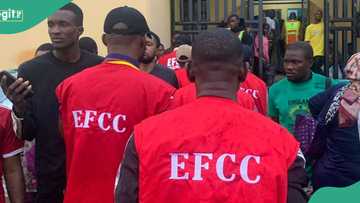Drug Abuse, Cultism, Teen Pregnancy... ‘Prizes’ of Dearth of Gender Budgeting in Nigeria's Oyo State
- Social vices among Nigerian youths such as drug abuse, gangsterism, and internet fraud pose significant challenges to education and the nation's development
- Oyo state is bereft of a running education sector plan (ESP), a strategy document that provides a goal for the educational system and outlines the means to attain it
- This special report spotlights the challenges that affect the enrolment, retention, and completion of basic education for girls and boys in Oyo state vis-à-vis gender-responsive education budgeting
CHECK OUT: Education is Your Right! Don’t Let Social Norms Hold You Back. Learn Online with LEGIT. Enroll Now!
Legit.ng journalist, Ridwan Adeola Yusuf, has over 5 years of experience covering gender issues and basic education in West Africa.
Igbeti, Oyo state - The birds chirped gleefully in the bush, a joyful sound that filled the morning air. In their domain, unannounced visitors — young boys — formed a ring and conversed in a low tone.
“One of the principals tipped me off about cultists' meeting holding in the bushy area just after the school’s fence. So, I stormed there with my colleague and effected 'arrests'. Then I transmitted the matter to the Nigeria Police Divisional Headquarters Igbeti,” said Hakeeb Adeola Abass, a key member of the Igbeti Volunteer Rescue Mission (IVRM) during an exclusive moment with Legit.ng.

Read also
Did Rivers sole administrator summon Fubara? Prominent lawyer shares what he was ‘reliably told’
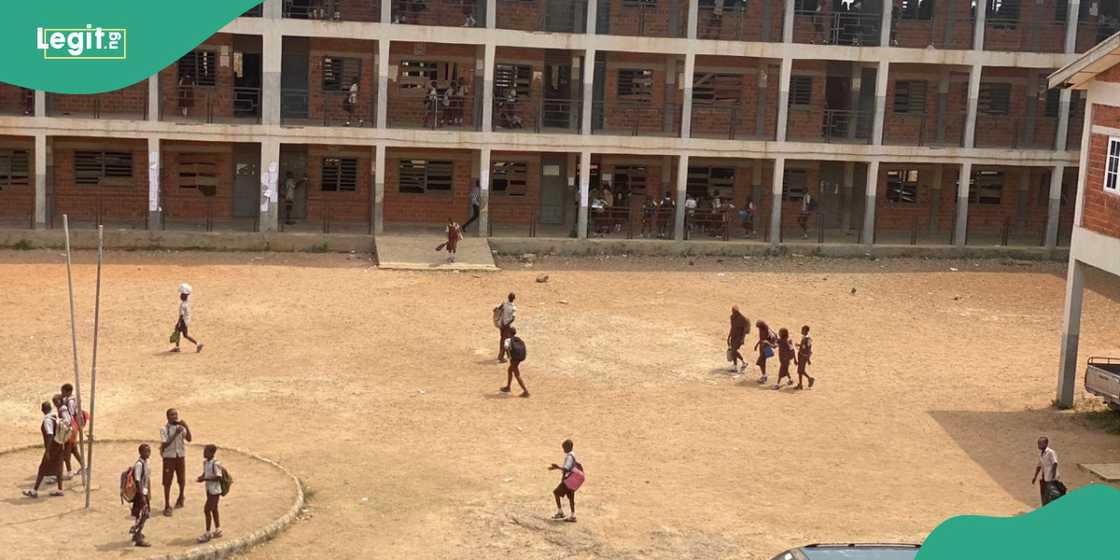
Source: Facebook
IVRM, a community-based organisation in marble-rich Igbeti, a town in Olorunsogo local government area (LGA) of Nigeria’s southwest Oyo state, provides emergency response services and support to students at basic education level. Founded in February 2025, the group has been at the forefront of reintegrating learners into the education system as well as complementing the efforts of security, traditional, and religious institutions. For IVRM, vagrancy, loitering/child labour during school hours, and truancy are abominations.
Cultism, one of the scourges Abass and his associates are strongly combating, is a major problem in Oyo, one of West Africa’s largest cities. This ‘dark secret’ was acknowledged by Johnson Adenola, the commissioner of police (CP) in the state, who in March 2025, formally deplored school-related gang violence.
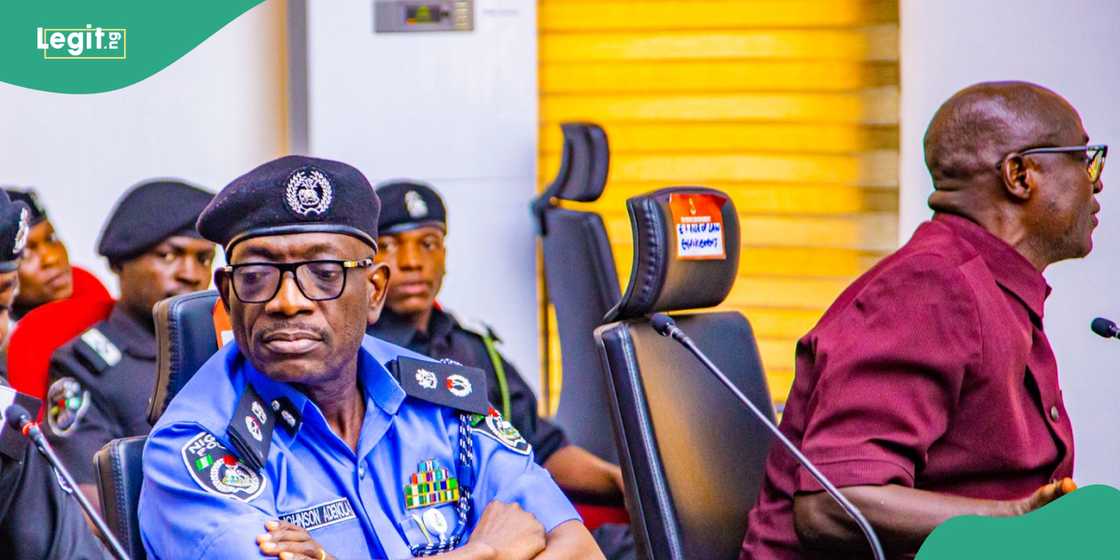
Source: Facebook
“It is unfortunate that many students in the state are cultists, with nicknames different from their real identities,” said Adenola, who spoke after a chaos at Christ Apostolic Church (CAC) Grammar School, Orita-Aperin Oniyere in Ibadan.
Suspected cultists from nearby Government Technical College had gone berserk, invaded the premises of the CAC Grammar School, and vandalised vehicles and science laboratory equipment, with damages running into millions of naira. Some people received machete cuts during the attack which was carried out by mostly male persons.
“I personally interviewed these children and the revelation was stunning. I was surprised at the level of decadence in the public schools in the state,” lamented CP Adenola.
A viral social media video in Nigeria showing what appeared a teenage cult member can be viewed below:
Peculiar problem in basic education in Oyo state
While many states in Nigeria have a higher number of out-of-school female children, Oyo state is an exception as the number of out-of-school boys exceeds that of girls. Olayiwola Abiodun Stephen, an Education Management Information System (EMIS) officer in the Oyo state ministry of education, science and technology, confirmed this reality during a workshop on Gender-Responsive Education Sector Planning, Budgeting and Girls’ Education Performance Tool (GEPAT) in Lafia, Nasarawa state, attended by this reporter.
In the same vein, a 2023 baseline assessment on the status of gender-responsive education budgeting and spending (GREBS) in Nigeria, focusing on Oyo and Gombe states, by Invictus Africa, spotted the fact that a significant number of boys are disengaged from education in Oyo state.
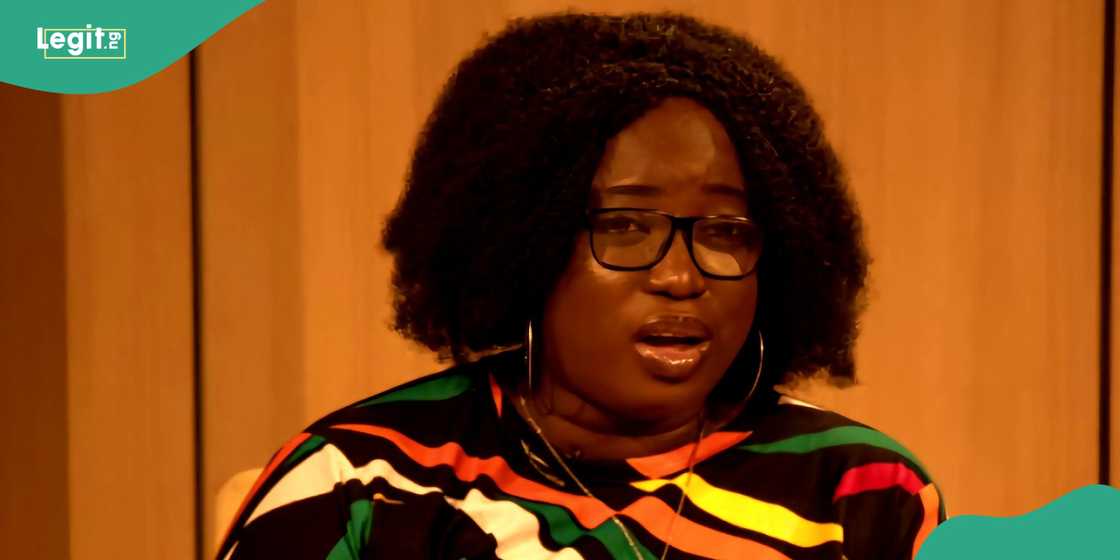
Source: Facebook
Bukky Shonibare, the executive director of Invictus Africa, an organisation that addresses gender inequality, blamed the unusual challenge on poverty, social norms, and peer influence — all leading to boys being lured to ‘Yahoo Yahoo’. For context, ‘Yahoo Yahoo’ (an alternative name for ‘Yahoo Boys’ or ‘G-Boys’) is a term used to describe young men who defraud mostly non-Nigerians via the internet. The term is a savvy name for a Nigerian cyber fraudster. It could be a picker, loader, hacker, swindler, and sometimes cruelly, money ritualist — feigned as ‘Yahoo Plus’.
“This is an emerging dimension of gender disparity,” said Shonibare in an interview with Legit.ng while commenting on the higher rate of boys’ disengagement from basic education in Oyo state.

Read also
Legit.ng editorial assistant graduates with First Class honours from Abiola Ajimobi university
Giving an overview of the reality of out-of-school children across the six southwest states, Babagana Aminu, an education specialist with the United Nations Children's Fund (UNICEF) Nigeria, pointed out that it is not that children in the region are not enrolling in school for formal education; the concern is that a significant percentage of them do not wait to complete their secondary school education let alone transit to tertiary institution level.
Citing the Multiple Cluster Indicator Survey (MICS) conducted by the National Bureau of Statistics (NBS) in 2021, Aminu noted that up to eight percent of school-age children in the zone are not in school for one reason or another.
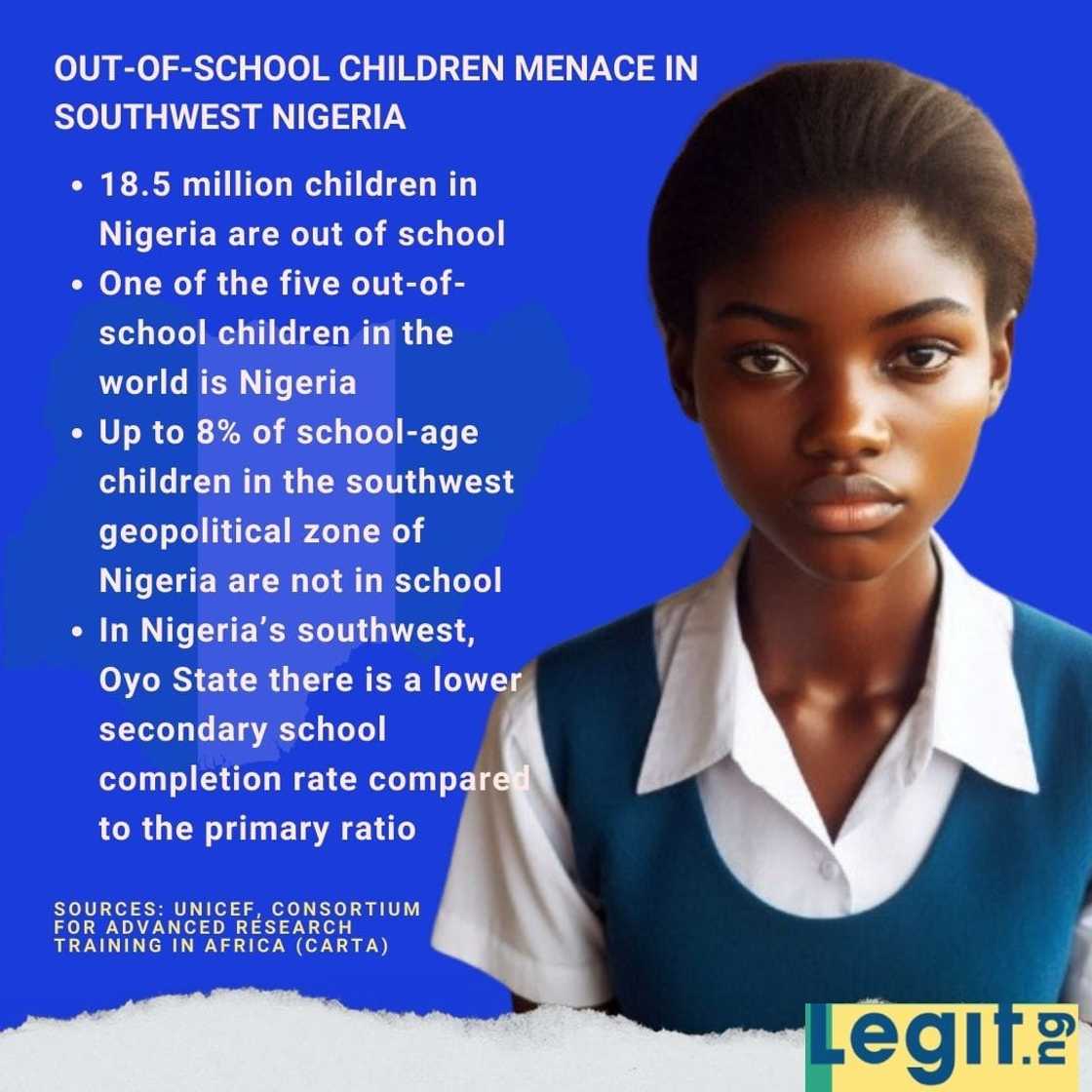
Source: Original
Legit.ng reports that secondary school boys involved in cultism and ‘Yahoo Yahoo’ who are subsequently detained by law enforcement agents compound the retention and completion woes of Oyo students, thereby contributing to the state’s out-of-school children number.
Oyo state does not have an active education sector plan (ESP) and neither is its blueprint for the sector gender-responsive, thus, authorities are not integrating gender-focused strategies into their planning processes. The absence of a gender-responsive ESP has buoyed cultism and truancy which affects students’ retention and completion rates.

Read also
Energy rights group backs naira-for-crude policy, warns new NNPCL leadership against dubious reforms
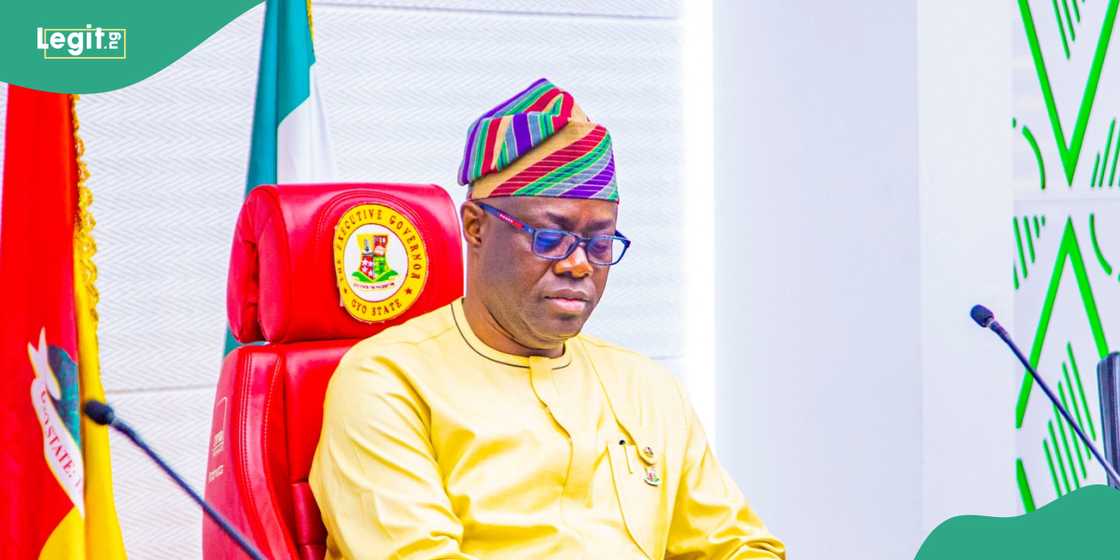
Source: Facebook
Gender-responsive education budgeting: Other challenges in Oyo state
Establishing sustainable budgeting and financing mechanisms to support girls’ education at the state level is essential. However, in Oyo state, girls do not genuinely matter to the Seyi Makinde-led government—at least going by its 2025 budget.
When it comes to basic education in the state, there is a total absence of a budgeting action plan for addressing challenges in girl-child education. In the 2025 Oyo state budget, the actual expenditure on girls of primary and secondary school age as compared to on boys was palpably missing.
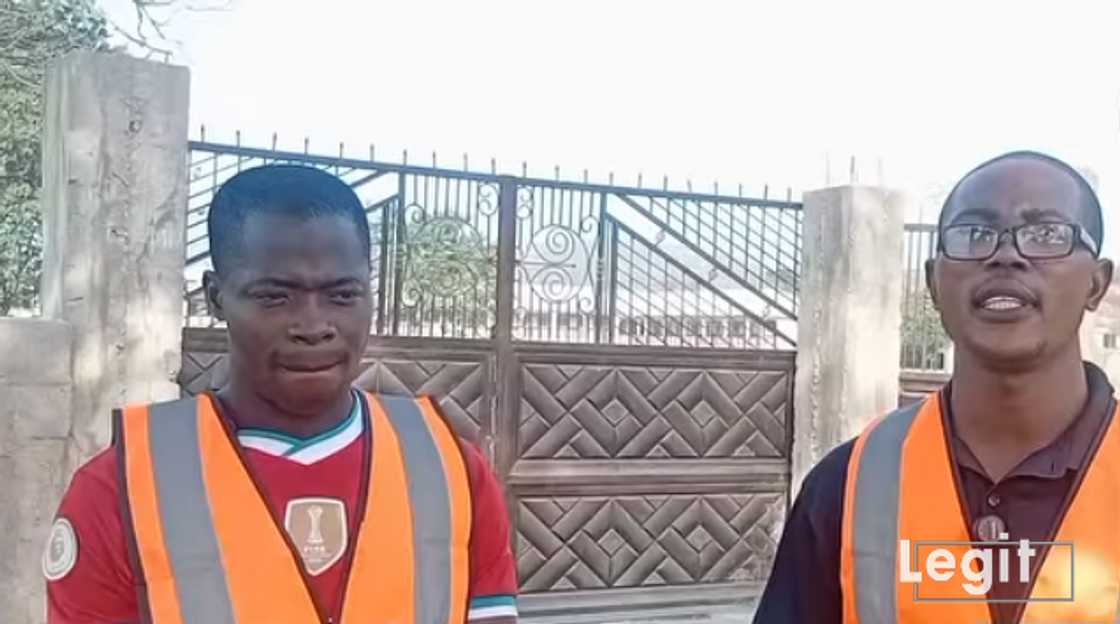
Source: Original
The non-application of a gender lens to budgeting has brought about lapses that apparently culminated in weird behaviours among girl students. During this reporter’s interaction with Abass, the community volunteer in Igbeti, he revealed how schoolgirls are lured into substance abuse.
“There was a day we busted some young Abokis (persons of northern Nigerian extraction) in the bush training our girls how to smoke hemp. I caught them and took them to their schools' principals,” said Abass.
Despite the illegality associated with the possession and use of hemp in Nigeria, many young citizens who supposedly represent the country's future still consume it.
In March 2025, the National Drug Law Enforcement Agency (NDLEA) disclosed that no fewer than one million people in Oyo state are involved in illicit drug consumption. Olayinka Joe-Fadile, the NDLEA state commander, noted that Oyo — like the rest of Nigeria — was grappling with high drug usage.
Drug abuse has been a cause of many criminal offences. Nigeria is notably hit, with the country ranked second in the list of African countries with high atrocities in 2025 with a crime index of 66.6.
In addition to cultism, cybercrime, and drug abuse, there is a prevalence of adolescent pregnancy in Oyo. Teenage pregnancy remains a major public health and socio-economic challenge in the state.
Sherifat ‘Bola’s lifelong ambition was to become a nurse so that she could help people in her community as there is a shortage of medical practitioners in Igbojaye where she is based, and Oyo in general, particularly in primary healthcare centers. However, her dream was interrupted at 15 when she mistakenly became pregnant.
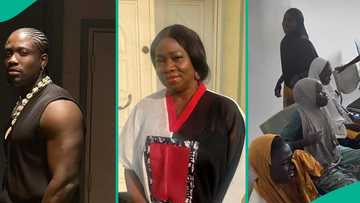
Read also
Dabiri reacts as VeryDarkMan gives her 1 wk to rescue children allegedly trafficked to Ivory Coast
Although Nigeria’s Child Rights Act protects the rights of girls to education during and after pregnancy, many continue to experience neglect because there is insufficient awareness and since there is no policy in place to ensure they carry on with their schooling.
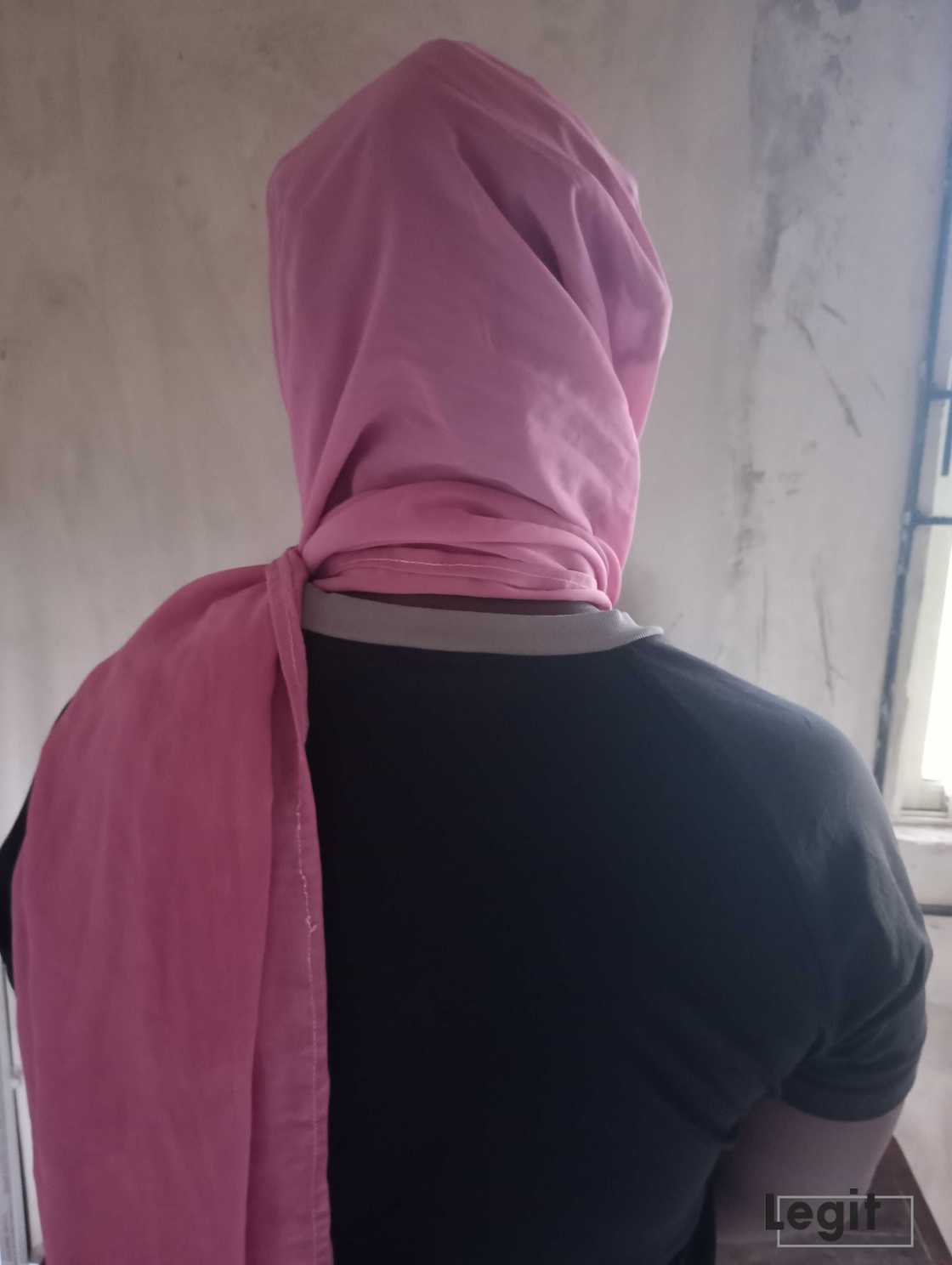
Source: Original
Now 21, ‘Bola opened up to Legit.ng how her parents' stance and lack of adequate government support contributed to her dropping out of school.
"I dropped out of school when I was discovered pregnant during a medical check-up programme for all girls in our area. Getting there, they found out that three of us were pregnant. After that, they told us to pack our things and go back home" said Bola. "At home, my parents said it was not even bad for me to drop out of school. The most important thing to them was my safe delivery. They said after I deliver my baby, when the child begins crawling, they would take me back to school — but that never happened.”
The lack of proper support made her “sad”.
“Nobody even came to help me during my pregnancy. I was just struggling until I delivered the baby, a girl,” recalled ‘Bola.
Legit.ng’s on-the-field findings uncovered that other challenges that affect the retention and completion of basic education for girls and boys across Oyo state include dysfunctional homes, sexual assault, early marriage, water, sanitation and hygiene (WASH), female gender mutilation (FGM), and underage sports betting.
Why gender-responsive education budgeting and spending is the way out
Gender-responsive education budgeting is a crucial approach to ensure equitable access and quality education for all.
Invictus Africa’s Shonibare expressed her belief that GREBS is a key approach through which governments can address the historical and persistent gender disparities in the access to and completion of basic education for school-aged children in states. She clarified that gender-responsive budgeting does not imply a separate budget; rather, “it is the process of planning, allocating, and disbursing education budgets in ways that are sensitive to and inclusive of the specific and intersecting needs of both girls and boys in the state”. Also, adopting GREBS principles is not just about more equitable education budgeting—it is about building a society in which all children, regardless of gender, have equal opportunity to access, thrive in, and complete basic education, Shonibare reasoned.
“This is how we begin to dismantle systemic barriers and pave the way for inclusive, rights-based development in Nigeria,” said the activist.
Solution to close gender gaps in education
In recognition of and response to the emerging unique and intersecting challenges in basic education, Invictus Africa, in 2024, developed and launched the GREBS Practical Guide, which is a resource designed to support state governments, including Oyo state. Shonibare noted that the guide helps authorities develop education budgets that are intentionally gender-sensitive.
“Since its release, we have actively deployed the guide in our engagements with key duty bearers in the state,” said Shonibare. “I should also state that prior to these direct stakeholder engagements, we had trained government officials, civil society actors, and media practitioners on the use of the guide. We also used the media to disseminate this message—for instance, I was also on the radio (BCOS) to talk about the guide in the local language (Yoruba) and we also produced radio jingles that were aired for some time. In all, our approach is that by engaging duty bearers, building the capacity of key actors, and sensitising the public, we can ensure a wide base of understanding for gender-responsive budgeting in education in Oyo state.”
When Legit.ng messaged Professor Salihu Adelabu, Oyo state‘s commissioner for education, science and technology, concerning the deficiency in the state's 2025 budget, he said the government "will look into it.”
Oyo slumbers on innovative pedagogies
Earlier, Legit.ng analysed why the Oyo state government needs to build a better pedagogy.
Like Lagos’ EkoExcel, the case was made for why the Oyo state government should consider educational interventions that focus on gender-responsive teaching techniques.
This report is produced under the "Change Reporting 2.0: Media Fellowship on Gender-Responsive Education Planning" jointly by ImpactHouse Centre for Development Communication and the System Strategy and Policy Lab (SSPL).
PAY ATTENTION: Сheck out news that is picked exactly for YOU ➡️ find the “Recommended for you” block on the home page and enjoy!
Source: Legit.ng







